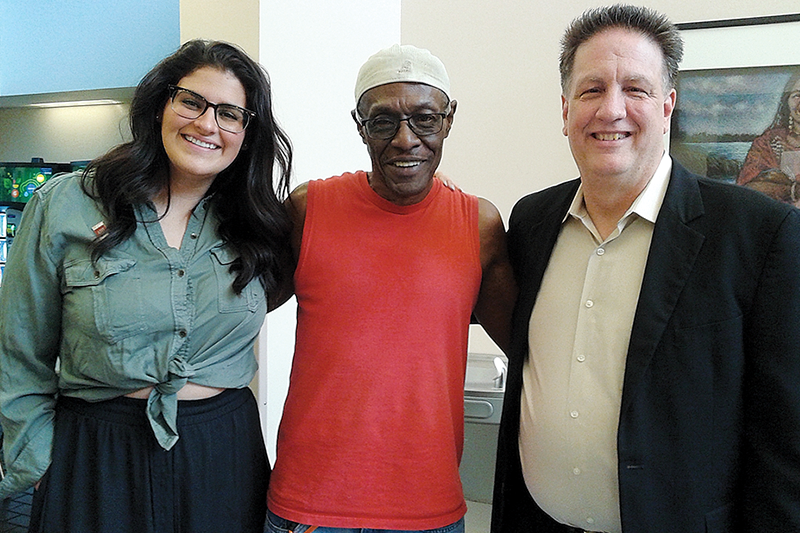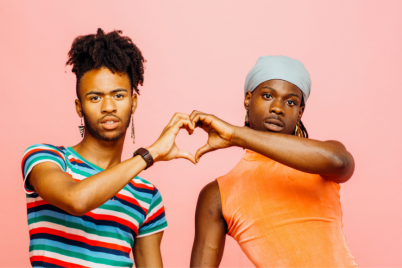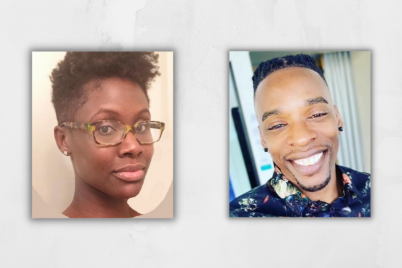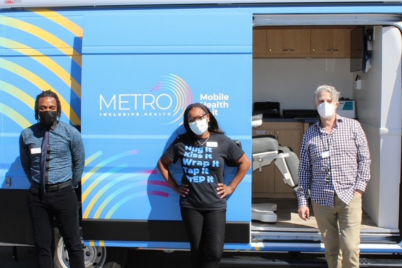L-R, Ashley Smith, AIDS Foundation, J. Carl Devine and Steve Kornell
BY J.A. JONES, Staff Writer
ST. PETERSBURG – Community members, educators, healthcare professionals, state health officials and local representatives gathered at the Enoch Davis Center last Saturday for a one-day conference held by the Banyan Tree Project, Inc.
The conference, part of the Ujima Men’s Collective initiative, was held to discuss issues surrounding the ongoing HIV health crisis among African-American gay men, or same gender loving men. Discussions also revealed striking disparities in rates of African American perinatal HIV and HIV among blacks versus Latinos and whites.
The day-long event covered a number of specific issues that are being ignored by the media that point to grave statistics in the rates of HIV/AIDS in the African-American community, and covered topics including policy, HIV and mental health, relationships, stigma, drug laws, financial health and trends.
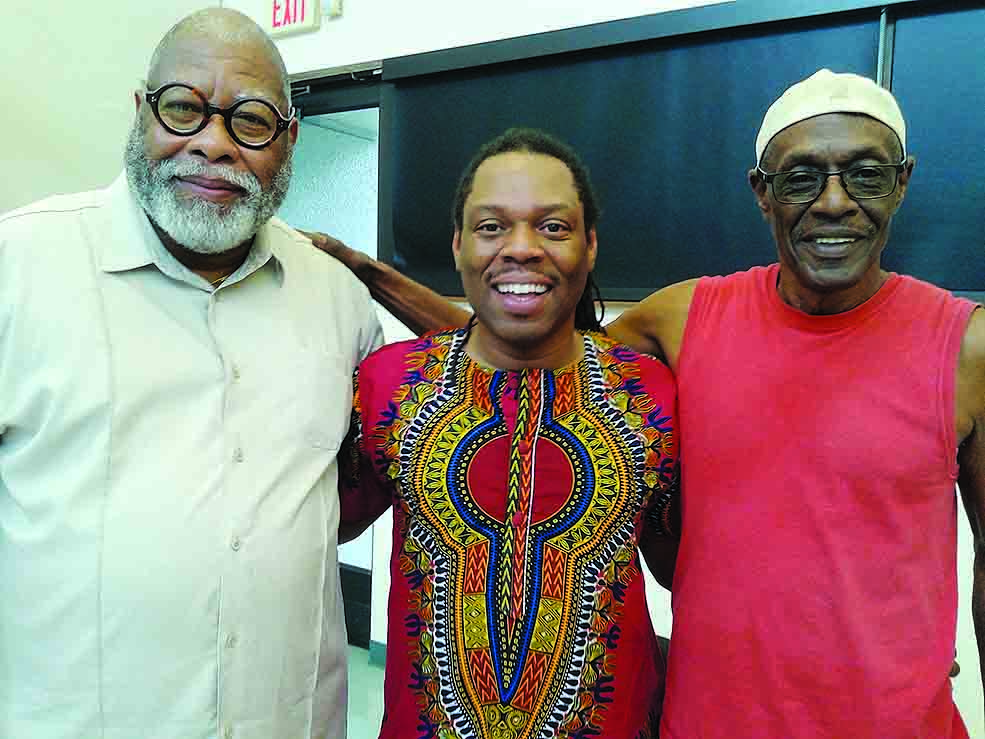
L-R, Christopher Bates, Michael Benjamin-Robinson and J. Carl Devine
Presenters included Ron Henderson, health equity manager and statewide minority AIDS coordinator, Christopher Bates, former director of the Office of HIV/AIDS at the U.S. Department of Health and Human Services, Cheryl Howell, Affordable Housing director, Hillsborough Board of County Commissioners and Michael Benjamin-Robinson, the BACH Group, a New Orleans minority support practice. Also, District 5 City Council member Steve Kornell showed up to lend his support.
According to the Florida Department of Health, there has been some positive news:
Within the 20 Florida counties with the highest rates of AIDS among African Americans:
-
There has been a 40 percent decline in HIV cases among black heterosexual women and a 42 percent decline overall since 2005
-
While HIV was the number one cause of death among African Americans ages 25-44, in 2016 it was the fifth cause of death
However, on the negative side of the scale:
-
There has been a rise in the rate of HIV among African-American youth, with 74 percent of pediatric HIV infection cases existing in the black community, and 100 percent of all perinatal HIV (transmitted by birth) occurring among blacks
-
Among African-American MSM (men having sex with men) there has been an 18 percent increase in HIV between 2005 and 2014
-
Black women still account for 63 percent of all HIV cases, compared to less than 20 percent among Latinos and whites
-
African Americans comprise only 14 percent of the adult population in Florida but represent 41 percent of HIV cases
-
While African Americans represent only 14 percent of American teens, in 2013, they accounted for more than two-thirds (67 percent) of new cases
-
African Americans represent more than 51 percent of new cases among MSM aged 13-24, and the number of new infections in this age range rose by 78 percent in the black community
Still, while the topic was dire, the event was empowering and uplifting, with passionate deliveries by presenters, and a clear commitment to continuing the fight to change the picture of HIV among African Americans in Florida through education and activism.
Organizer, activist, educator and Banyan Tree Project’s Executive Director J. Carl Devine was pleased with the turnout, the informative discussions and the response.
“The word that we have heard most often used is ‘powerful.’ Some of the dialogue brought people to tears; it was that powerful for them. We had a mixture of the community, black, white, gay, straight, male, female, transgender,” he said.
And while the statistics are grim, DeVine and his supporters know the only way forward is education. He was grateful for the support of the Florida Department of Health in Pinellas County and sponsors including AHF Pharmacy, Community Specialty Pharmacy, Gilead and the AIDS Healthcare Foundation.
Also represented at the event were vendors from the Black Nurses Association, Neighborly Care Network, Metro Wellness & Community Center, EPIC/Empath Health and The Burg Cares, among others.
“We did accomplish what we wanted,” said DeVine. “We wanted to educate people about HIV and AIDS and educate people about the disparity in health equity in our communities…because our communities are not getting all the healthcare and information that they need.”
The conference targeted specific populations – black men, same gender loving men and the people who support them. The next community the Banyan Tree Project hopes to address will be the youth. Devine said an intervention had been written to take them back not only historically, but to prepare them for some of life’s issues that are coming up.
“One of the things we’re trying to get people to do is understand who they are and understand that they‘re in control of their lives and their bodies. That’s our next thing – trying to reach the younger-than-young.”
Post Views:
3,334

